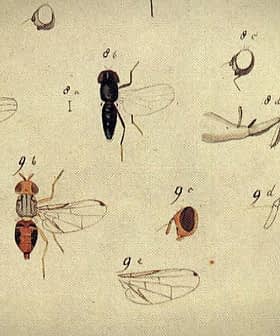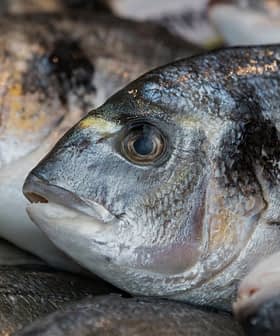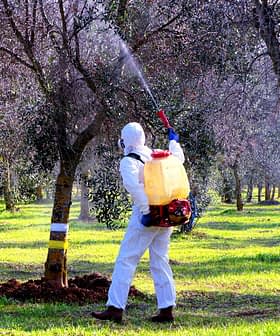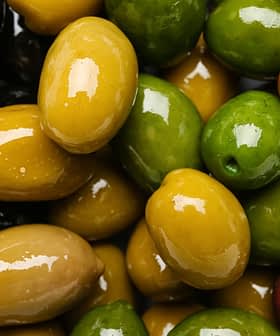Phenols in Olive Mill Byproducts Can Be Effective Preservatives in Fresh Meats
A study in Italy revealed that phenols can be used as antioxidants in raw and cooked fresh pork sausages, preventing lipid oxidation and in limiting the oxidative degradation of cholesterol.
A study conducted in Italy found that phenols from olive vegetation water can serve as natural preservatives in fresh meat, with the research to be published in LWT Food Science and Technology. The research team aimed to replace synthetic additives with natural compounds to address consumer demand for fewer additives in food and to verify the effectiveness of natural antioxidants in meat products.
According to a recent study conducted in Italy, phenols from olive vegetation water can be effective natural preservatives in fresh meat.
Olive Oil Times had the opportunity to preview research that will be published in the November issue of LWT Food Science and Technology and which were achieved through the close collaboration of Stefania Balzan, Barbara Cardazzo, Enrico Novelli and Luca Fasolato from the University of Padova; Agnese Taticchi, Stefania Urbani and Maurizio Servili from the University of Perugia; Giuseppe Di Lecce and Maria Teresa Rodriguez-Estrada from the Alma Mater Studiorum-University of Bologna; and Izaskun Berasategi Zabalza from the University of Navarra.
We wanted to test an alternative approach to the use of synthetic additives in this type of food, as well as to verify the efficiency of natural antioxidants.
“Nowadays, the replacement of chemical additives with natural compounds in food preparations is a matter of great interest, both to consumers and to the food industry,” Giuseppe Di Lecce told Olive Oil Times. “Consumers not only have a strong expectation of foods with the fewest or lowest possible level of additives but also tend to sharply distinguish between natural and synthetic extra ingredients.”

Giuseppe Di Lecce
Many people believe that processed meat is unhealthy. “The consumption of fresh ground meat preparations is very widespread due to their pleasant taste and ease of cooking, but according to a survey on the health benefits of processed meats, half of the respondents believed that processed meat contains large quantities of harmful chemicals,” said Di Lecce, who has also served as a judge or panel leader at all five editions of the annual New York International Olive Oil Competition (NYIOOC).
Nevertheless, food additives like antioxidants must be used to control lipid oxidation during food processing and storage, in order to prevent rancidity, deterioration of sensory quality and production of free radicals which are involved in a series of chronic degenerative pathologies other than cancer.
“On this basis, we wanted to test an alternative approach to the use of synthetic additives in this type of food, as well as to verify the efficiency of natural antioxidants,” he explained.
The well-established positive contribution of extra virgin olive oil to human health is mainly attributed to the antioxidant actions of a composite class of hydrophilic phenols. Accordingly, in this study researchers used a purified phenolic extract obtained from fresh olive vegetation water arising from the Moraiolo olive cultivar.
The entire experiment was performed in three replicates, each one using slightly more than 40 kg (88.1 lbs) of shoulder and belly pork that was ground, mixed with salt and divided into three batches. With the goal of avoiding secondary and non-standardizable antioxidant effects from other ingredients, no spices were added.
Each batch was further mixed and stuffed into bovine casings by using a hydraulic piston-type stuffer. The sausages, nearly 100 g (3,52 oz) each, were left to drip and then stored without packaging in a display cabinet under alternating exposure to fluorescent light to simulate retail shops and butcheries.
At zero, 7 and 14 days, a representative number of sausages from each batch were sampled and frozen in liquid nitrogen before being stored at 80°C (?112°F) until analysis. At the same times, the same number of sausages from each batch was cooked, cooled in an ice bath, stored for 72 hours at 2 – 4°C (35.6 – 39.2°F) and then frozen in liquid nitrogen before being stored at ‑80°C (-112°F) until an analysis.
The meat products were evaluated before and after an aerobic storage for 14 days. Adding the phenol extract at different concentrations, researchers found a decrease in pH, diacylglycerols, peroxide value, thiobarbituric acid reactive species, and cholesterol oxidation products. Sensory analysis revealed significant differences between control samples and those enriched with the extract, but the enriched samples were never considered unpleasant by the panelists.
The results revealed that the purified phenol extract showed efficacy in preventing both primary and secondary lipid oxidation and in limiting the oxidative degradation of cholesterol in raw and cooked fresh pork sausages. Phenols proved to be an effective antioxidant in these food products, thus resulting a potential ingredient to ensure quality and safety of meat preparations.
“This approach has many advantages,” Di Lecce observed. “For the meat industry, in a perspective of a progressive reduction in the use of synthetic additives toward the so-called clean label; for consumers, in terms of benefits from the health standpoint; for the olive oil sector, with a view to a more sustainable approach in managing byproducts and providing an added value to the wastewater,” Di Lecce concluded.









